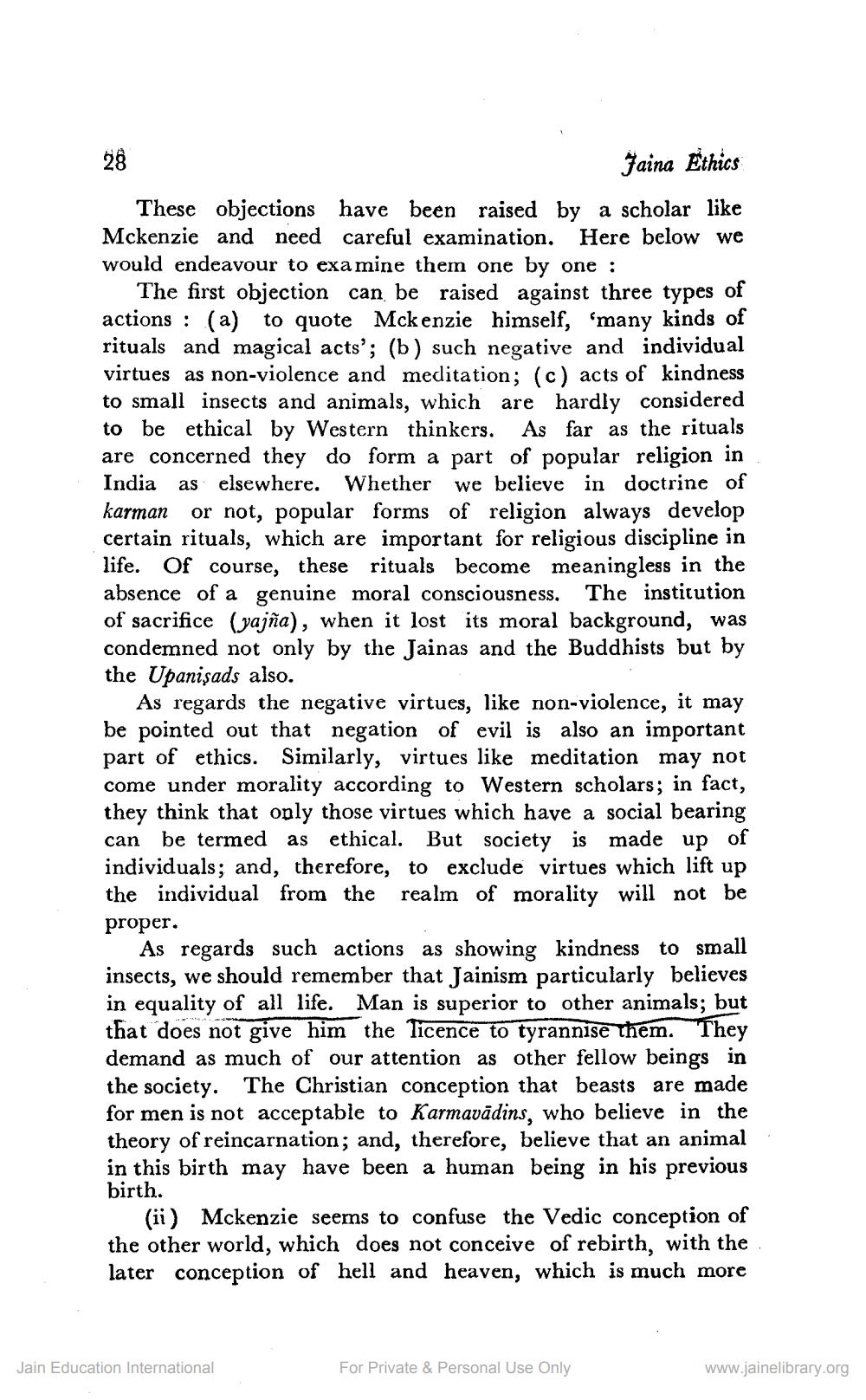________________
28
Faina Ethics These objections have been raised by a scholar like Mckenzie and need careful examination. Here below we would endeavour to examine them one by one :
The first objection can be raised against three types of actions : (a) to quote Mckenzie himself, 'many kinds of rituals and magical acts'; (b) such negative and individual virtues as non-violence and meditation; (c) acts of kindness to small insects and animals, which are hardly considered to be ethical by Western thinkers. As far as the rituals are concerned they do form a part of popular religion in India as elsewhere. Whether we believe in doctrine of karman or not, popular forms of religion always develop certain rituals, which are important for religious discipline in life. Of course, these rituals become meaningless in the absence of a genuine moral consciousness. The institution of sacrifice (yajña), when it lost its moral background, was condemned not only by the Jainas and the Buddhists but by the Upanişads also.
As regards the negative virtues, like non-violence, it may be pointed out that negation of evil is also an important part of ethics. Similarly, virtues like meditation may not come under morality according to Western scholars; in fact, they think that oply those virtues which have a social bearing can be termed as ethical. But society is made up of individuals; and, therefore, to exclude virtues which lift up the individual from the realm of morality will not be proper.
As regards such actions as showing kindness to small insects, we should remember that Jainism particularly believes in equality of all life. Man is superior to other animals; but that does not give him the licence to tyrannise them. They demand as much of our attention as other fellow beings in the society. The Christian conception that beasts are made for men is not acceptable to Karmavādins, who believe in the theory of reincarnation; and, therefore, believe that an animal in this birth may have been a human being in his previous birth.
(i) Mckenzie seems to confuse the Vedic conception of the other world, which does not conceive of rebirth, with the later conception of hell and heaven, which is much more
Jain Education International
For Private & Personal Use Only
www.jainelibrary.org




